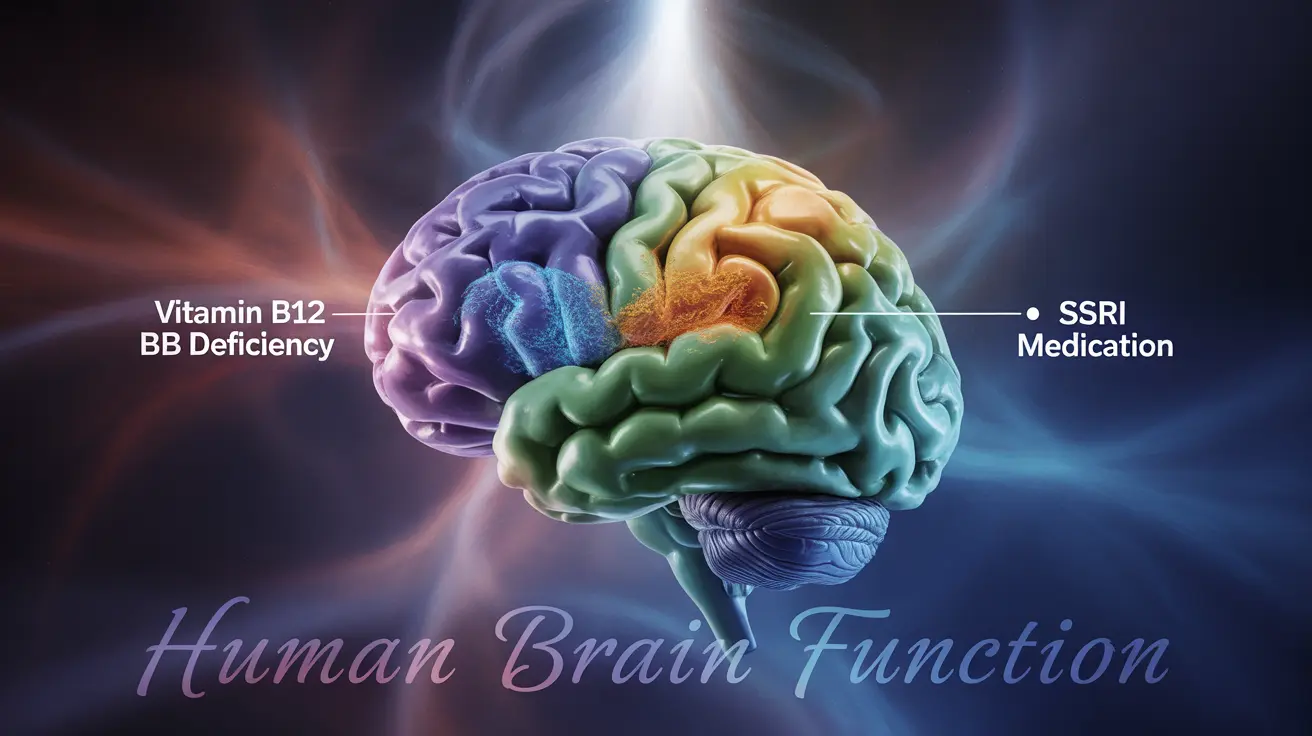When someone receives a dementia diagnosis, it's natural to wonder if the condition can be reversed. While many forms of dementia are progressive and permanent, certain types can actually be treated and potentially reversed when caught early. Understanding the difference between reversible and irreversible dementia is crucial for proper diagnosis and treatment.
This comprehensive guide explores the conditions that can cause reversible dementia symptoms, their treatments, and why early diagnosis is essential for the best possible outcomes.
What Is Reversible Dementia?
Reversible dementia refers to cognitive decline that can be treated and potentially cured when the underlying cause is identified and addressed. These conditions mimic dementia symptoms but aren't caused by permanent damage to brain cells like traditional degenerative dementias.
Common Causes of Reversible Dementia
Vitamin Deficiencies
Several vitamin deficiencies can lead to dementia-like symptoms, particularly:
- Vitamin B12 deficiency
- Vitamin B1 (thiamine) deficiency
- Vitamin D deficiency
- Folate deficiency
Medication Effects
Certain medications or combinations of medications can cause cognitive symptoms that resemble dementia. These effects often resolve when medications are adjusted or discontinued under medical supervision.
Medical Conditions
Various treatable medical conditions can present with dementia-like symptoms:
- Thyroid disorders
- Depression
- Sleep disorders
- Normal pressure hydrocephalus
- Infections affecting the brain
- Metabolic imbalances
The Importance of Early Diagnosis
Early diagnosis is crucial for identifying potentially reversible causes of dementia. The sooner these conditions are discovered, the better the chances of successful treatment and recovery. Regular medical check-ups and prompt investigation of cognitive changes can help identify treatable conditions before they cause lasting damage.
Treatment Approaches
Medical Interventions
Treatment varies depending on the underlying cause:
- Vitamin supplementation for deficiencies
- Medication adjustments
- Hormone replacement for thyroid conditions
- Antibiotics for infections
- Treatment of metabolic disorders
Lifestyle Modifications
Supporting treatment through lifestyle changes can enhance recovery:
- Improved nutrition
- Regular exercise
- Better sleep habits
- Stress management
- Social engagement
Distinguishing from Irreversible Dementia
Unlike reversible conditions, diseases like Alzheimer's cause permanent changes to brain structure and function. Understanding this distinction helps healthcare providers determine appropriate treatment approaches and gives patients and families realistic expectations about outcomes.
Frequently Asked Questions
- Can dementia be reversed if it is caused by vitamin deficiencies or medication side effects?
Yes, dementia symptoms caused by vitamin deficiencies or medication side effects can often be reversed when the underlying issue is properly treated. This may involve vitamin supplementation or adjusting medications under medical supervision.
- What are the common treatable conditions that can cause reversible dementia symptoms?
Common treatable conditions include vitamin B12 deficiency, thyroid disorders, depression, sleep disorders, normal pressure hydrocephalus, certain infections, and metabolic imbalances.
- How important is early diagnosis in identifying reversible causes of dementia?
Early diagnosis is crucial as it allows for prompt treatment of reversible conditions before they cause permanent damage. The sooner these conditions are identified and treated, the better the chances for complete recovery.
- What treatments are available for dementia caused by infections or metabolic disorders?
Treatments vary by condition but may include antibiotics for infections, hormone replacement for metabolic disorders, and specific medical interventions to correct underlying imbalances. Success rates are highest when treatment begins early.
- Why is Alzheimer's disease considered irreversible compared to other types of dementia?
Alzheimer's disease causes permanent structural changes in the brain, including the death of nerve cells and the formation of abnormal protein deposits. Unlike reversible conditions, these changes cannot be undone with current medical treatments.




